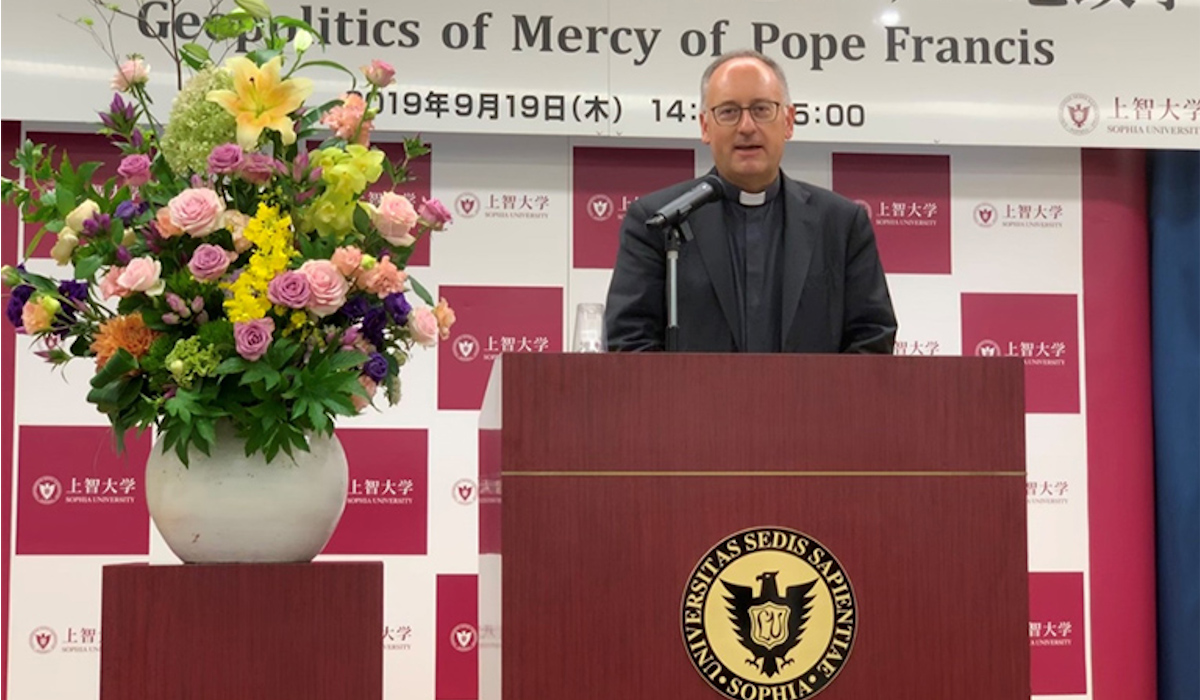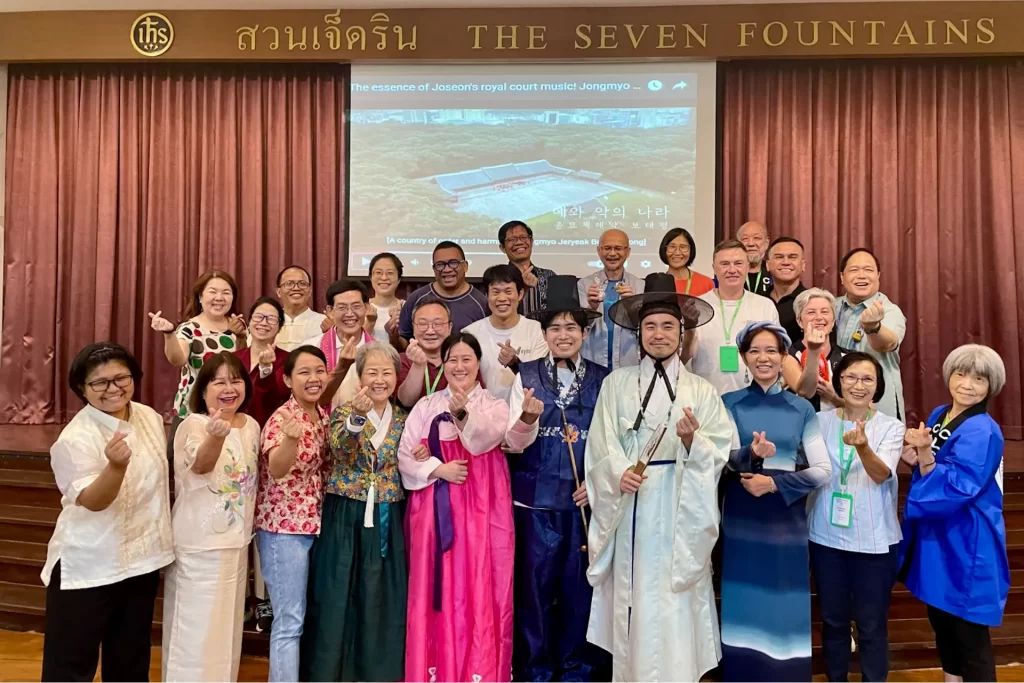
The editor-in-chief of La Civiltà Cattolica and advisor to the Pope said the central message of Pope Francis is mercy, noting that the pontiff mentioned mercy no less than eight times during a recent address to the College of Cardinals.
“For Francis, it is not an abstract concept, it is the action of God within the life of the world, in societies, in human groups, in families and in individuals. God not only acts through the lives of individual people but through the historical processes of peoples and nations, even in the most complex and intricate ones,” said Fr Spadaro.
Expanding this to the level of geopolitics, he explained that mercy means one must “never consider anyone or anything as definitively lost in relations between nations, people and states”.
One metaphor that Pope Francis has frequently used for the Catholic Church is that of a “field hospital,” which must always go where it is needed, and always work to heal wounds. “Pope Francis has a habit of touching walls at places of conflict, as he sees them as the injuries of the world,” said Fr Spadaro. “He does not want to hear a speech that is general and abstract. He wants to touch the injured lands, one by one.” He has done this in sites of conflict such as the wall of Bethlehem and the camps at Auschwitz.
Pope Francis also frequently brings up the idea of “open and incomplete thought”, which means taking care not to shut out possibilities, but to always seek to understand situations, evaluate consequences and look beyond immediate concerns. Speaking to La Civiltà Cattolica, the Pope said that “only truly open thought can face the [global] crisis, understand where the world is going, and handle the most complex and urgent crises”.
As an example, Fr Spadaro cited the ongoing war in Syria. Pope Francis has constantly repeated the cry for peace and openness to dialogue when he meets with world leaders. When he received the Iranian President in January 2016, the “Vatican drew attention to the important role of Iran together with other countries in the region to promote adequate political solutions to the problems facing the Middle East, countering the spread of terrorism and arms sales,” said Fr Spadaro.
He also cautioned against the rise of fundamentalist influence in politics, which he says arises out of the fear of chaos and when mercy is abandoned. “When you feel fear, it’s very easy for politics to instrumentalise religion,” he said, stressing the need for open thought. “The Pope rejects the mixing of morals, politics and religion that divides reality between the absolute good and the absolute evil. He knows that there are always different interests at stake, and that different sides act out of standpoints that are usually morally ambiguous.”
The theme of the Pope’s visit is “the protection of all life”, in relation to peace, economy, environment and relations with neighbouring countries. “Francis has long expressed his admiration for Japanese culture and Japanese history,” said Fr Spadaro. He cited the witness of faith of the Japanese Church during the persecutions in the 16th and 17th centuries. “Francis’ journey to Japan is to be seen in the context of his broad, open geopolitical perspective, which aims to give hope and a future to this world.”
Fr Spadaro’s talk is the first of a series of three symposia planned by Sophia University on the aims of the Papal Visit. The invitation first came from Japanese Prime Minister Shinzo Abe in 2014 and later by a joint invitation from the mayors of Nagasaki and Hiroshima, two cities which Pope Francis will be visiting besides Tokyo. In addition to meeting with survivors of the atomic bombings of Nagasaki and Hiroshima, the Pope will also meet with survivors in the Tohoku region of the Great East Japan Earthquake of 2011, and of the tsunami and nuclear power plant accident which followed. He will also hear the concerns of marginalised groups and the problems experienced by immigrants to Japan. [Japan Up Close]






